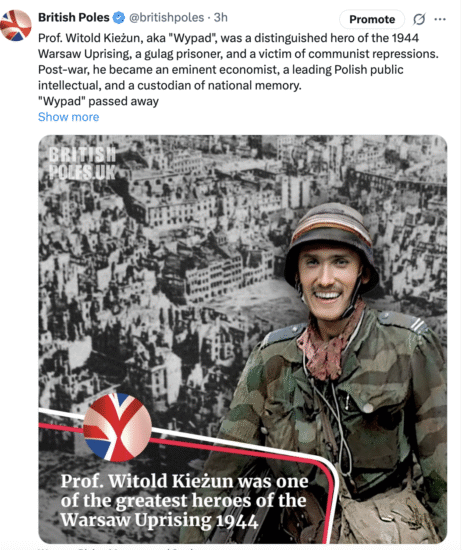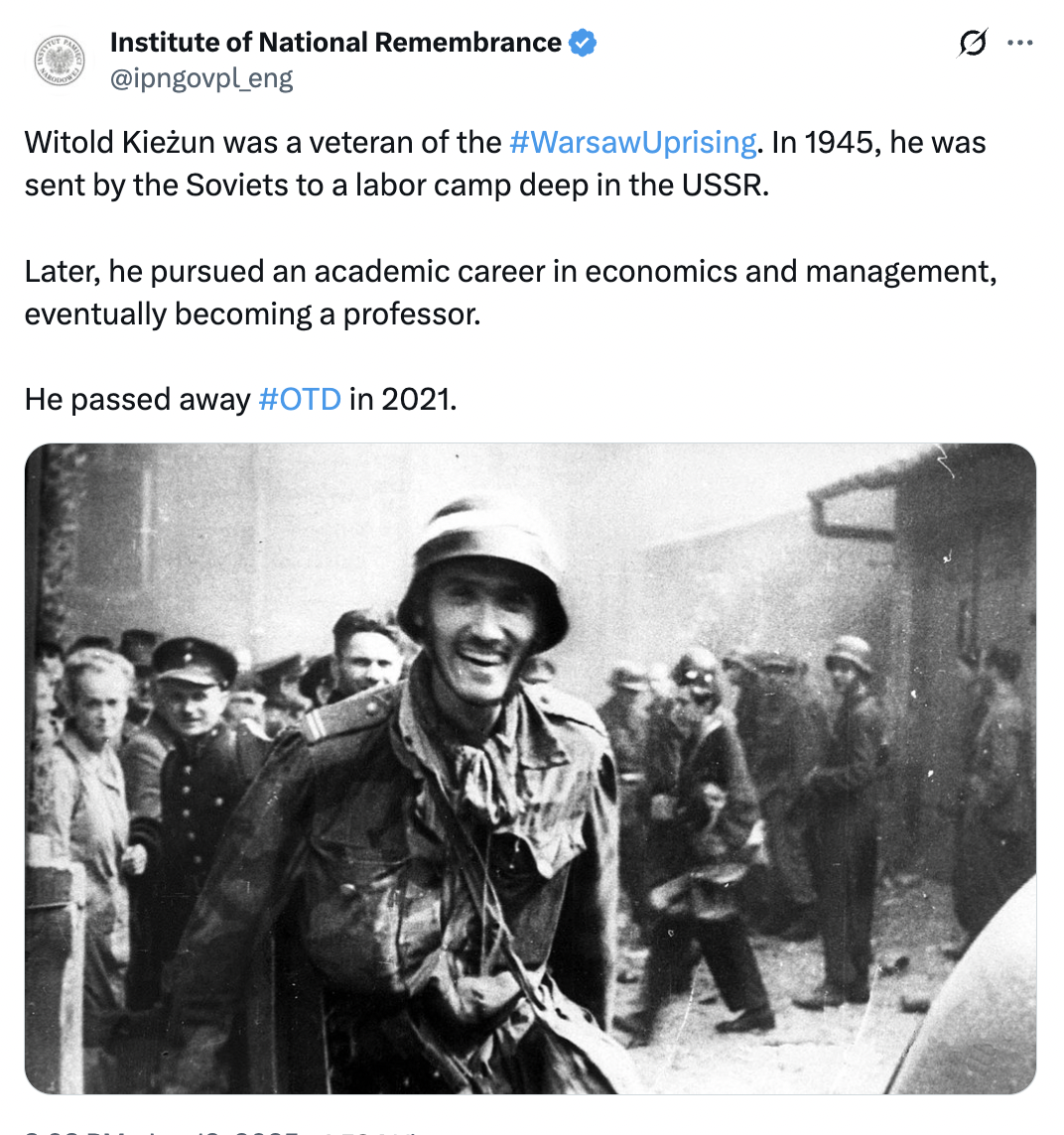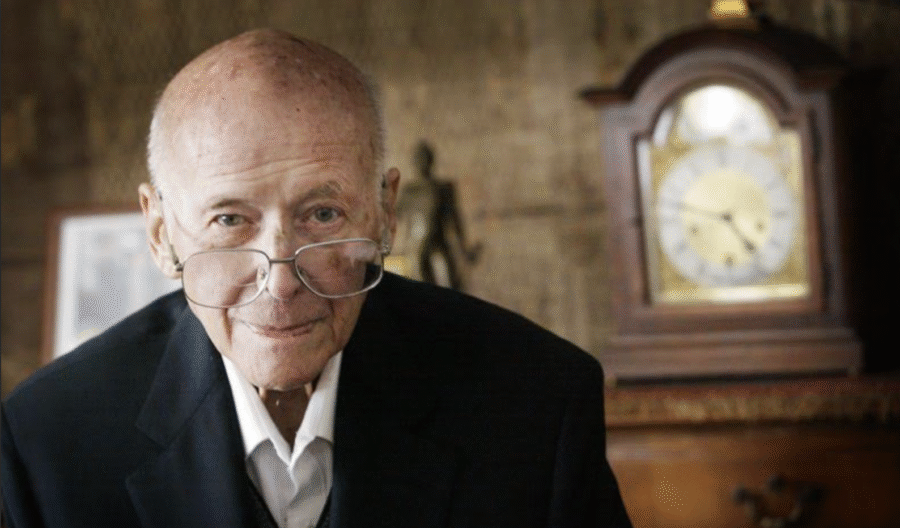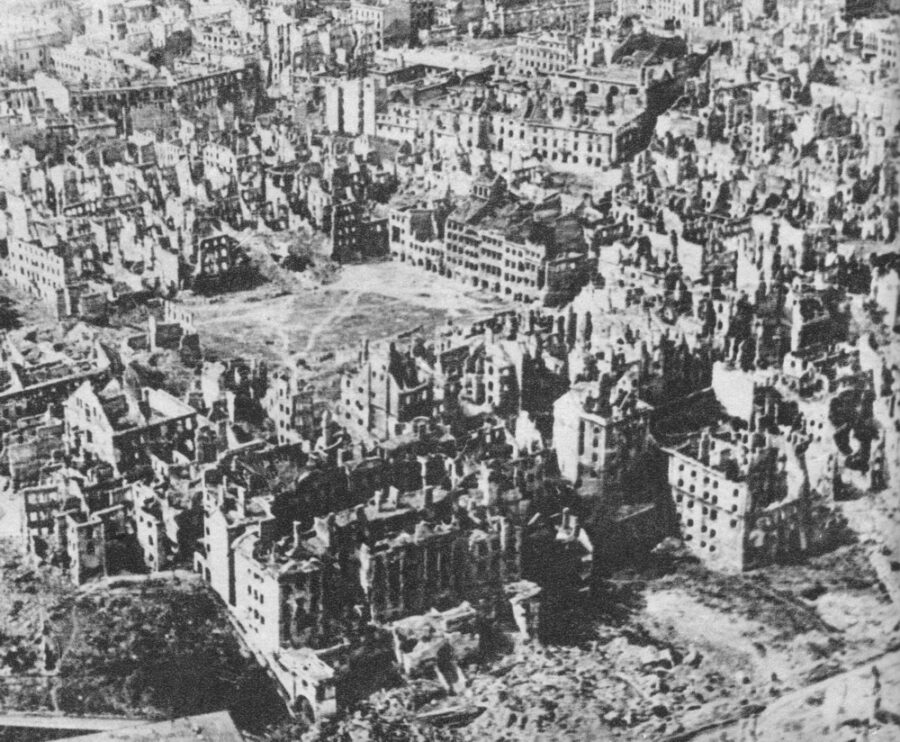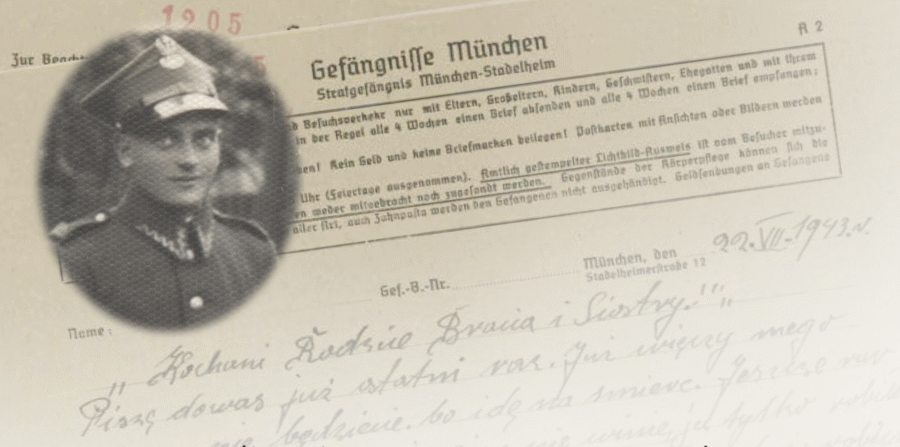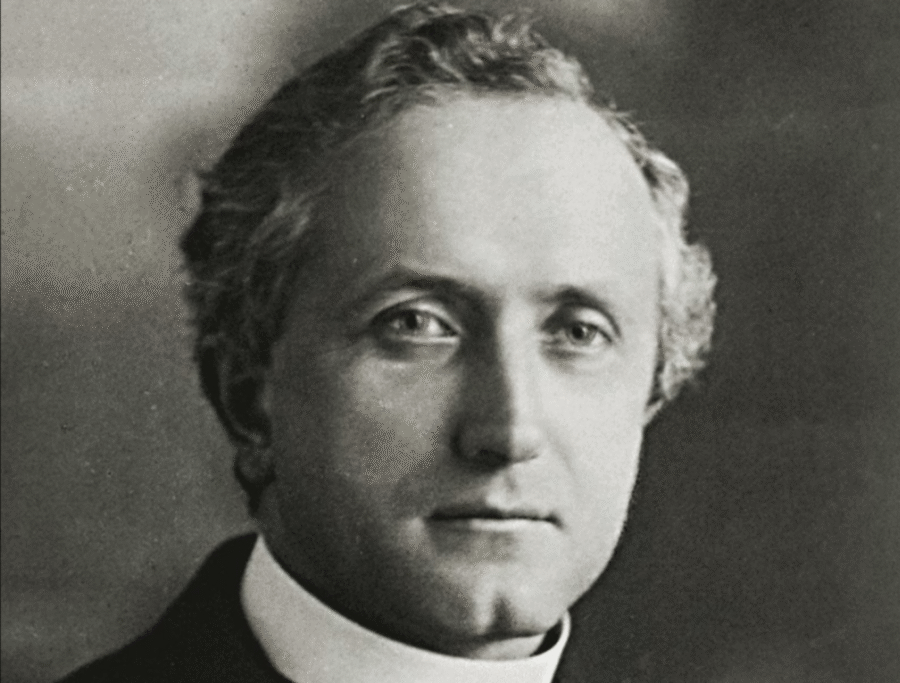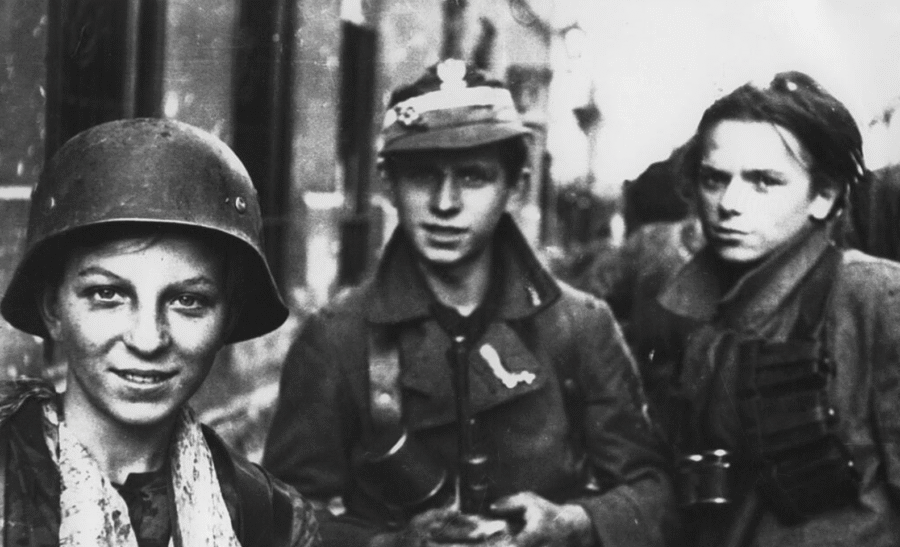Witold Kieżun was born on 6 February 1922 in Vilnius. A soldier of the Home Army and a veteran of the Warsaw Uprising, he later rose to prominence as a distinguished economist and praxeologist.
Witold Kieżun, born in 1922 in Vilnius, moved with his family to Warsaw in 1931. There, he completed his secondary education at the Józef Poniatowski Humanities Grammar School and Lyceum, graduating in 1939.
In a 2005 interview for the Oral History Archive of the Warsaw Rising Museum, he reflected on his roots: “I come from a background of Lithuanian-Ruthenian nobility that became Polonised in the early 16th century. It’s the kind of world Sienkiewicz describes in The Deluge—Kmicic came from just such a family. But in our case, the Polonisation was centuries deep, with an extraordinary intensity of patriotism.”
At the outbreak of the Second World War, Kieżun joined the Polish underground resistance as a soldier of the Home Army. During the Warsaw Uprising of 1944, he fought in the special operations unit Harnaś, part of the Gustaw battalion.
He took part in daring combat missions, including the seizure of the Main Post Office at Napoleon Square (today Warsaw Uprising Square), the police headquarters on Krakowskie Przedmieście, and the parish house of the Holy Cross Church.
In a particularly audacious episode, with his submachine gun jammed, he managed to force 14 German soldiers to surrender through sheer force of will, seizing their rifles and 2,000 rounds of ammunition.
In recognition of his valour, Kieżun was awarded the Cross of Valour in August 1944 and, a month later, the Virtuti Militari—Poland’s highest military decoration—personally presented by General Tadeusz Bór-Komorowski, commander of the Home Army. One of the enduring images of the Uprising captures Kieżun just moments after capturing a German heavy machine gun, his face lit with joy and youthful defiance.
Kieżun began studying law at the underground University of Warsaw in the academic year 1942/43. He later recalled in a 1950 statement: “I completed the first year in full, and attended lectures for the second, but the outbreak of the Warsaw Uprising during the exam period made it impossible to sit the final exams. After the Uprising and my escape from German captivity, I settled in Kraków, where I resumed my law studies.” He completed his degree in 1949 at the Jagiellonian University.
Returning to Warsaw, Kieżun took up a post at the National Bank of Poland before moving into academia as a teaching assistant at the Central School of Planning and Statistics (now the Warsaw School of Economics). He soon began doctoral research at the Praxeology Department of the Polish Academy of Sciences, earning a PhD in economics in 1964. Five years later, he completed his habilitation and in 1975 was awarded the title of professor.
In 1980, Kieżun took his expertise abroad, joining the School of Business and Administration at Temple University in Philadelphia. He later became director of one of the United Nations’ largest development programmes for modernising Central African economies, served as a governmental advisor in Burkina Faso, and held professorships at the Université de Montréal and the Université du Québec à Montréal. He also chaired the Programme Council of the Polish Institute of Arts and Sciences at McGill University in Montreal.
Amid the rise of the Solidarity movement in Poland, Kieżun toured 14 universities in the United States and Canada in 1981, delivering a powerful lecture titled The Spirit of Solidarity. Throughout his career, he authored dozens of academic books and teaching manuals, published hundreds of articles and essays, contributed to numerous collected works, and wrote two volumes of literature. He also composed several pieces for the piano, reflecting his deep but unfulfilled passion for music. In recognition of his lifelong contributions, he was named an honorary member of the Polish Academy of Sciences.
Witold Kieżun died on 12 June 2022 in Warsaw.
Source: Dzieje.pl, Polskie Radio
Photo: @KolorHistorii
Tomasz Modrzejewski



